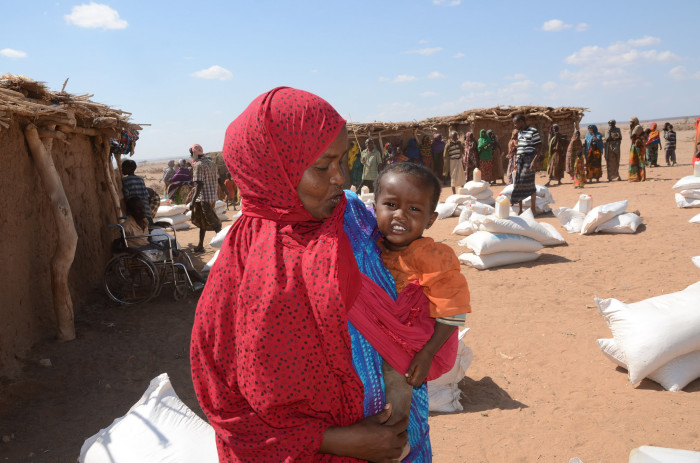
In May this year, the first World Humanitarian Summit will be held in Istanbul. The United Kingdom sees this as a real opportunity to take stock of how humanitarian aid around the world is distributed, and to improve the effectiveness of delivery to ensure that aid reaches those most in need. Humanitarian aid needs to be long term, predictable, preventative and delivered more efficiently. Statistics show that the world has never been so generous in response to the humanitarian needs of others, and yet never has the need been so great. About $25bn a year are provided by states and international organisations (the UK being one of the world’s leading donors), and yet the number and severity current of crises means that there remains a $15bn shortfall. Conflict – including that driven by violent extremism – or climate change and natural disasters are the dominant causes of crises.
The World Humanitarian Summit is also a priority for the Holy See. I was at an event in the Vatican this week – at the Pontifical Academy of Social Sciences – attended by the UN Under-Secretary General for Humanitarian Affairs, Stephen O’Brien. The Holy See Foreign Minister, Archbishop Paul Gallagher, told the gathering that Summit should place people, not process, at the heart of humanitarian response to crises. Caritas Internationalis President, Cardinal Tagle, argued that recipients must become agents rather than simply beneficiaries of aid and development. Reflecting the Pope’s insistence that we should not be indifferent to the suffering of others, Gallagher argued that we had a “common responsibility” to step in, in the event of a crisis where the affected state was unable or unwilling itself to provide aid, “with the consent of that state”. He added that religious networks and faith-based organisations were a vital but underused resource in this respect.
He is right. Faith based networks are often the best trusted and most efficient deliverers of long term grass roots aid, connected to local structures, wisdom and cultures. Faith-based organisations hit crises early, are less bureaucratic (with risks around accountability, but allowing for faster disbursement and action), remain long after a crisis disappears from the headlines, and can tap into vast networks of believers. The Catholic church alone runs the world’s largest non-governmental school system at a time when education is seen as one of the priorities for long term humanitarian aid worldwide. Islamic Relief is one of the world’s largest aid networks. In the words of the UN High Commissioner for Refugees, humanitarian organisations “simply cannot ignore the role of faith”.
The United Nations is waking up to this reality, and it is interesting that the Summit will see a Special Event devoted to the role of religions and faith-based organisations in aid delivery. Istanbul could well see a change in the paradigm of how humanitarian aid is delivered. The role of religious actors will be at the heart of that change.
